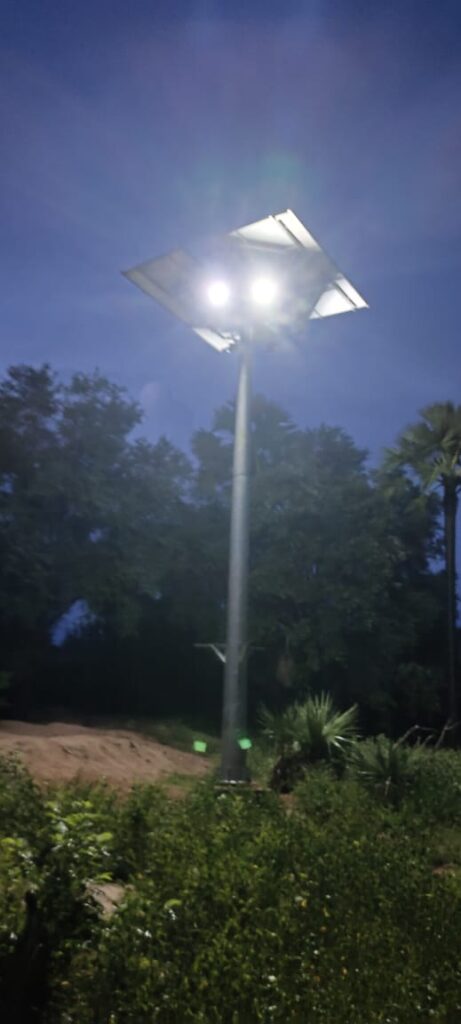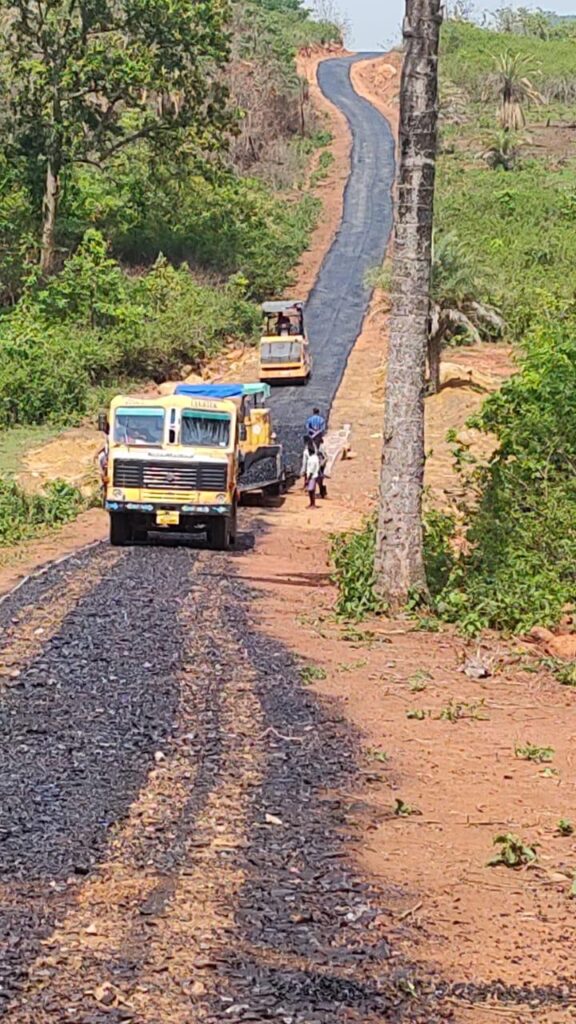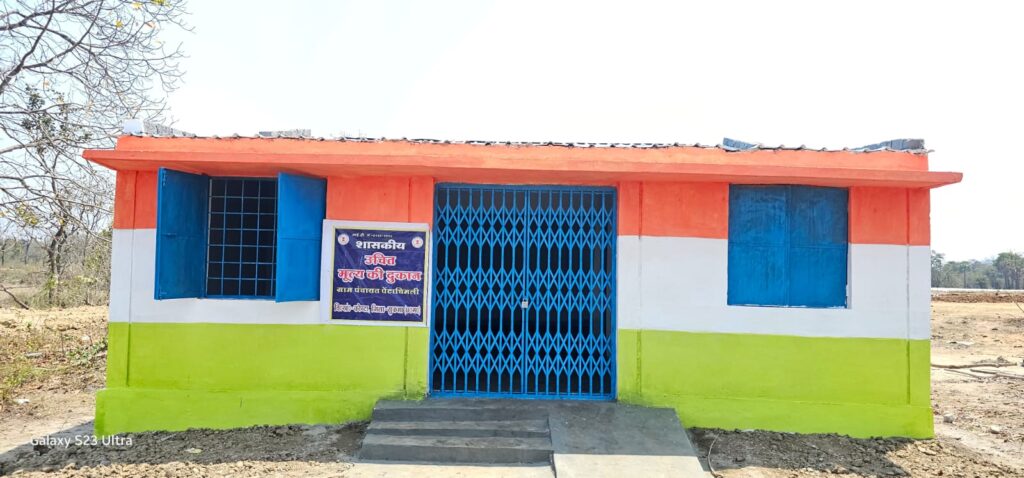Villages Rediscover Joy: Security and Development Breathe Life into Communities
By Surendra Kumar Thakur, Joint Director, Public Relations
Bastar, a land rich in natural beauty and cultural heritage, has always been a place where traditions run deep and communities live in harmony with nature. For generations, the people here have celebrated life despite the challenges that come with living in remote, forested areas. The sounds of traditional “maandar” drums once echoed through the hills, village markets bustled with activity, and children eagerly attended school. But all of that changed when Maoist violence gripped the region. The once-vibrant haat bazaars—the lifeblood of these villages—fell silent, schools closed, and roads emptied.
For years, the tribals of Bastar held on to hope, but it was a hope that felt more distant with each passing day. The government’s efforts to bring development were stifled by fear and violence. Yet, in recent years, something remarkable has begun to unfold in Bastar. Under the leadership of Chief Minister Shri Vishnu Deo Sai, the government launched a unique initiative called “Niyad Nellanar” – a program that translates to “Your Prosperous Village.” Its mission is simple but profound: to restore hope, revive livelihoods, and return the lost smiles to these forgotten communities.

At the heart of this initiative is a focus on the villages within a five-kilometer radius of security camps. These areas, once held hostage by terror, are now the focal point of government development efforts. The change is palpable. Haat-Bazaars that had been closed for years are springing back to life. Schools are reopening, and the once-quiet roads are now bustling with activity. It’s as if Bastar is breathing again.

The transformation is evident with the smiles and peace on the faces of the people who live here. For years, the villagers of Kilepal in the Darbha block had lived without basic amenities like roads and electricity. Their weekly market, once a vibrant hub, had fallen into disrepair. But thanks to the Niyad Nellanar initiative, the roads are now paved, electricity has finally reached their homes, and the market is once again alive with the sounds of trade and laughter. It’s not just a market—it’s a symbol of the community’s resilience and hope.

In nearby Koleng village, the change is equally inspiring. New roads have been built, schools reopened, and an Anganbadi center has been set up to care for the youngest members of the community. This has emerged as a hope for mothers like Savita, who had long worried about her children’s education and almost given up on their future. “I thought my children would never go to school,” she says, her voice filled with emotion. “But now, they have a chance.”
The impact of Niyad Nellanar stretches far beyond basic amenities. It’s about restoring dignity and giving people a reason to dream again. In Puvarti, a village in the Konta block of Sukma district, the local ration shop is about to open for the first time. For decades, the villagers had to walk miles to neighbouring areas just to buy essentials. With the shop now in their village, families no longer need to make these difficult journeys. It’s a small change, but for villagers like Rajeshwari, it’s life-changing. “For the first time in years, I feel like the government hasn’t forgotten us,” she says with a smile.
The story of Puvarti is especially poignant because it was once a stronghold for Maoists. Hidma, a Maoist commander with a Rs 1 crore bounty on his head, called this village home. For years, Puvarti was a symbol of everything that was wrong in Bastar—isolated, terrorized, and neglected. But today, it is becoming a symbol of hope. With the establishment of a security camp, government schemes are reaching the village, and life is slowly returning to normal. Children now attend school, and families are receiving the basic amenities they were once denied.
In some of the most remote villages of Bastar, the Niyad Nellanar initiative is working miracles. In Nawapara Elmagunda, located deep in the Sukma district, the installation of DTH has opened up a world of information and entertainment for both children and adults. For the first time, villagers are watching the news, staying connected to the world beyond their forests. Mobile towers have been set up, ensuring that people can now access information about government schemes and opportunities.
In Narayanpur’s Orchha block, 12 families have seen their dreams of homeownership come true under Pradhan Mantri and Mukhyamantri Aawas Yojana. For families like that of Dhansingh, a farmer, having a permanent house means more than just shelter. It’s a step towards stability and a better future. His daughter, Ankita, now attends the Anganbadi center, where she receives supplementary nutrition and early education. “It’s a new beginning for us,” says Dhansingh.
Meanwhile, in Bijapur’s Chikkapalli village, a primary school building and an Anganbadi center are under construction. The villagers are watching as their children’s futures take shape in front of their eyes. Solar-powered pumps are bringing clean water to their homes, and new fair-price shops are ensuring that no one goes hungry. In Yampur village, eight borewells have been dug, and solar high-mast lights are being installed, bringing light to homes that had long lived in darkness.
The transformation in these villages is not just about infrastructure—it’s about restoring faith. The people of Bastar are rediscovering their joy, their pride, and their hope for a better tomorrow. As new roads, schools, and markets emerge, so too does a renewed sense of belonging. These once-forgotten villages are no longer defined by violence and isolation. They are now a testament to what is possible when communities are given the tools they need to thrive.
In the words of one villager, “Bastar is changing, and so are we.” The Niyad Nellanar initiative is more than just a government scheme—it’s a lifeline. It’s the promise that no matter how remote, no village will be left behind.
[metaslider id="347522"]

